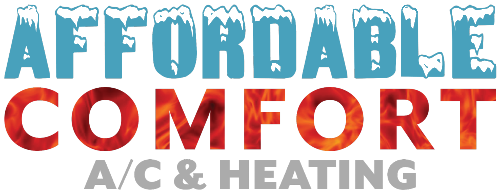How to Maintain Commercial Grade Air Conditioning Units
One must maintain commercial-grade air units very well to avoid costly damage and high energy bills
During the summer, average daily temperatures can reach above 98 degrees Fahrenheit. Therefore, such uncomfortable conditions in a commercial environment can hinder business activities. For that reason, one should regularly maintain commercial-grade air conditioning units.
Keep reading for tips on maintaining a commercial air conditioning unit to keep business premises comfortable for employees and customers.
Monitor the thermostat
Before summer, check that the HVAC thermostat works as expected. Otherwise, a variety of problems may arise, including uneven cooling. An easy way to tell whether the unit functions properly is to check if a thermometer reading matches the actual room temperature.
If there is more than a degree difference, the thermostat isn't giving a precise reading. In this situation, contact an HVAC professional for advice. On the other hand, if the reading is accurate, ensure the settings are adjusted for comfort and energy savings.
Keep the air filter clean
The air filter of a commercial-grade HVAC unit filters and cleans the air by trapping debris, dust, dirt, and dangerous particles. However, the filter will eventually become dirty and clogged and restrict airflow. As a result, the unit will work harder to deliver cool temperatures.
Inspect the air filter regularly to keep energy costs low and avoid system malfunction.
Keep the AC condenser unit clean
The condenser is the outdoor portion of the unit or heat pump that releases heat or collects heat and transfers it indoors. Keeping it clean is an essential maintenance task. Typically, it's found attached to an outside wall or on top of the roof. A condenser that isn't maintained may not be as efficient in keeping the place cool. If the condenser is on the roof, contact an experienced HVAC professional to handle the job.
Keep the condensate line and drip pan clean
HVAC systems extract heat and humidity from an indoor space. The condensate line drains the moisture to prevent it from accumulating in the unit. However, over time, mold and algae may grow in the condensate line and cause a blockage. If the line isn't cleaned, it may cause damage to the unit and create a polluted environment.
Check the drip pan to verify whether the condensate line is blocked. The drip pan is usually beneath the indoor unit. Ensure the unit is switched off first. The condensate line is likely clogged if water is in the drip pan.
Consider professional HVAC maintenance services
Managing a commercial property and the activities that occur inside it can be hectic. Therefore, one must maintain commercial-grade air units very well to avoid costly damage and high energy bills. If there's no time to DIY the unit maintenance, contact a local, experienced HVAC company. They'll deliver a professional and dependable service.
When you need AC repair and maintenance, AC installation, and ductless AC services for your residential or commercial property in the Phoenix, AZ Metro area, Call Affordable Comfort A/C and Heating at 602-574-1205. Our company is licensed, bonded, and insured.

